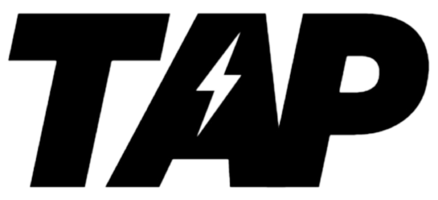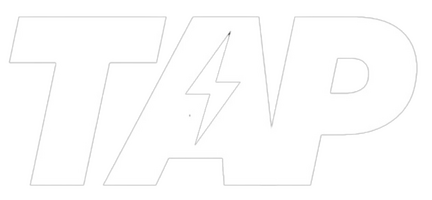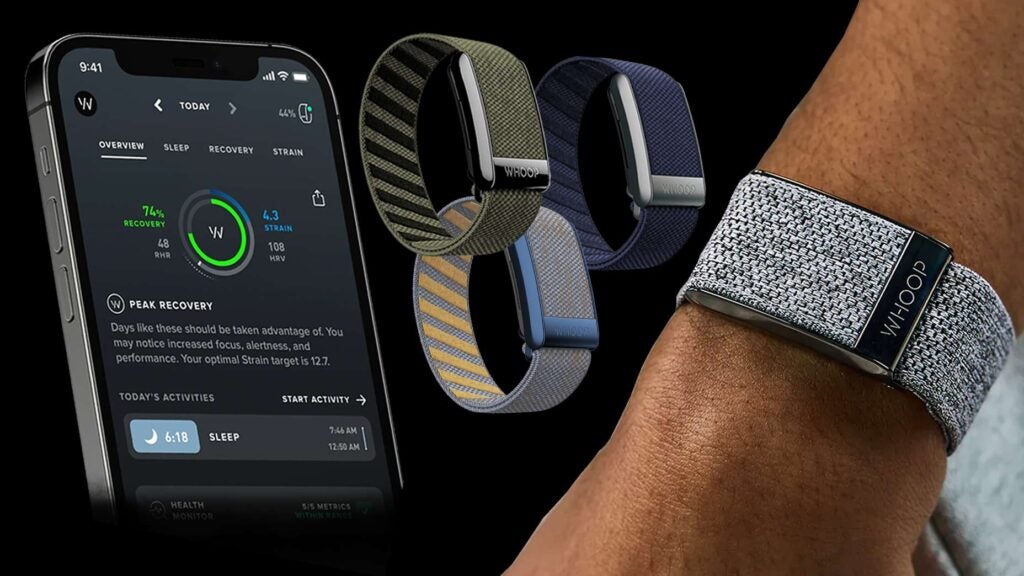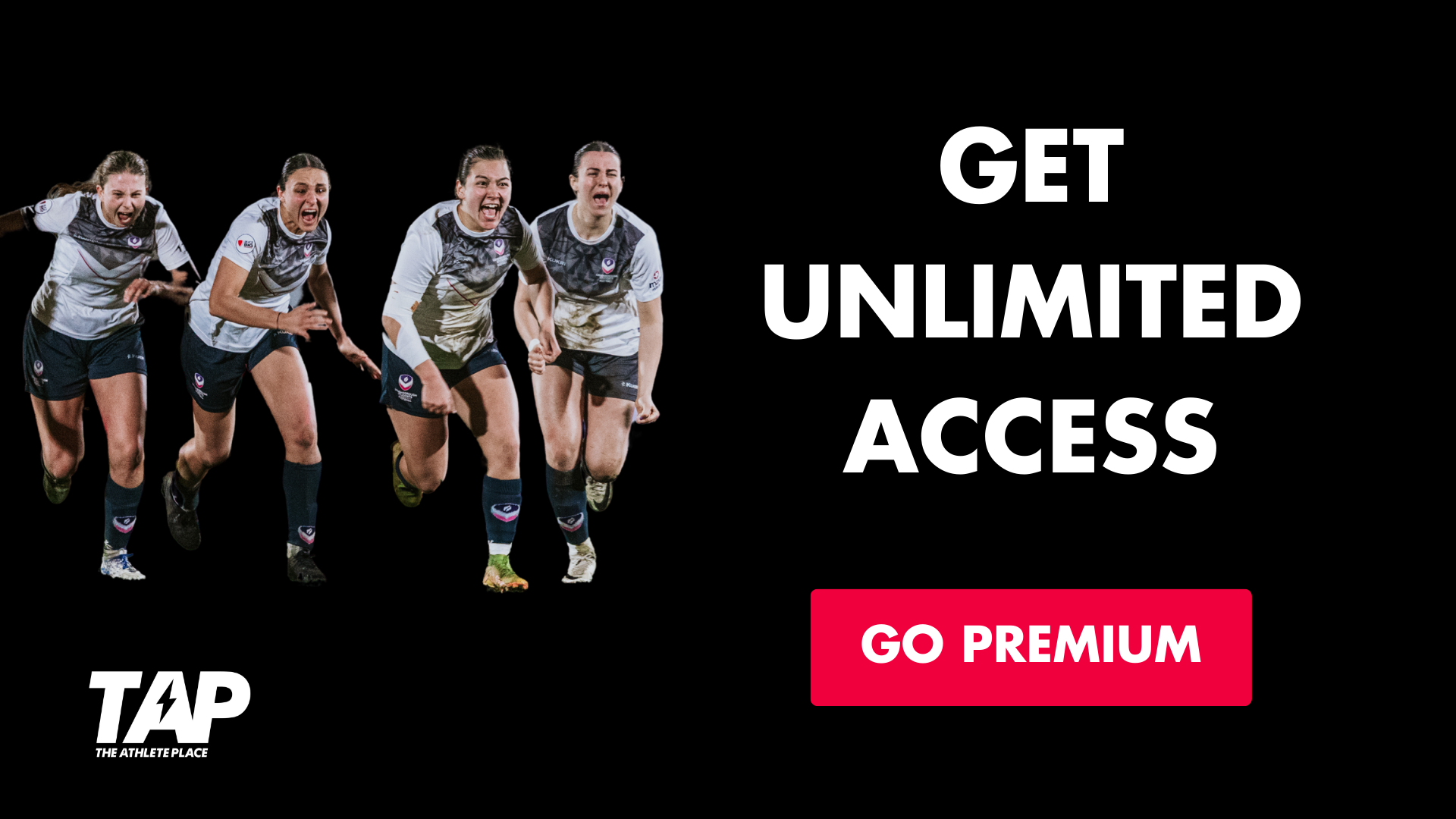Wearables: helpful or just another source of stress? We discuss the pros and cons with our resident Sleep Expert, Sandy Wilson, and 2x Paris Olympic Medalist Alex Haydock-Wilson.
A lot of smartwatches or wearable devices now offer sleep tracking as a product feature. These primarily work by using accelerometers to track movement (which is very low during sleep) that are run through an algorithm to estimate whether you are asleep or awake.
These devices actually compare reasonably well with research assessment tools at estimating bedtime and wake-up time and how long you have slept. Although they do tend to miss short awakenings overnight, they may overestimate sleep duration.
They are also not very good at determining what stage of sleep (e.g., deep sleep, REM sleep) we are in.
We would ignore these and any ‘recovery score' they provide. Use your own intuition to guide your sleep, and focus on how you feel.
Don't let your life be governed by a fictitious number on a screen.
If using wearables, use them as a long-term monitoring tool that you can reflect on once or twice a month rather than every night – this can lead to orthosomnia, where we can over-fixate on the results it provides and can make us more stressed when things aren’t perfect... they never will be. Everyone has bad nights of sleep!
We can still track our sleep without wearables or electronic recording.
I would recommend noting down in your training diary or making a spreadsheet for:
1. What time you went to bed
2. What time you woke up
3. How you are feeling today
This will provide plenty of information to look at long-term trends and whether adjustments to your typical sleep schedule are needed.
But if you want to explore using wearables...
There are definitely pros and cons to wearables. We aren't going to sit here and say they are terrible, nor will we tell you they're a must-have. You need to decide this for yourself.
Depending on personal preferences and desired sleep tracking and improvement features, users can choose between a smartphone-based app like Sleep Cycle or a wearable device like Fitbit, Whoop, Apple Watch or Garmin.
Let's take a look at some of the options out there:
Sleep Cycle
Is a sleep-tracking mobile app that analyses sleep patterns and helps users optimise sleep quality. Key features include:
Pros:
- Smart Alarm Feature: Wakes you up during the lightest phase of your sleep cycle, promoting a more natural and refreshed wake-up experience.
- Detailed Sleep Analysis: Provides comprehensive insights into sleep patterns and quality, helping you understand and improve your sleep habits.
- User-Friendly Interface: Features an intuitive and easy-to-navigate interface, making it simple to track and review sleep data.
Cons:
- Subscription Cost: Advanced features and in-depth analysis require a premium subscription, which may not be ideal if you're skint like most students.
- Accuracy Issues: Relies on phone sensors and microphones, which may not be as accurate as dedicated sleep tracking devices or wearables.
- Limited Health Metrics: Focuses primarily on sleep, lacking the broader health and fitness tracking features found in some other apps and devices.
Whoop
Has taken over the sport and fitness world over the last couple years, let's take a look at some reasons why.
Pros:
- Detailed Recovery Metrics: Provides in-depth insights into recovery, strain, and sleep performance, helping you optimize your training and recovery routines.
- Continuous Monitoring: Offers 24/7 heart rate monitoring and sleep tracking, giving you comprehensive data on overall health and fitness.
- Membership Benefits: Includes access to personalized coaching, community challenges, and advanced analytics through its subscription model.
Cons:
- Subscription Cost: Requires a monthly subscription, which can be expensive over time compared to one-time purchase options.
- No Display: Lacks an on-device screen, meaning all data must be accessed through the app, which may be less convenient for some of you.
- Limited Smartwatch Features: Focuses primarily on fitness and recovery tracking, with fewer general smartwatch features like notifications or apps.
Apple Watch
You already know about these.
Pros:
- Versatile Smartwatch Capabilities: Combines fitness tracking with extensive smartwatch features like notifications, apps, music control, and more.
- Integration with Apple Ecosystem: Seamlessly integrates with other Apple devices and services, providing a cohesive user experience.
- Advanced Health Monitoring: Offers advanced health features like ECG, blood oxygen level monitoring, and fall detection.
Cons:
- Battery Life: Generally has shorter battery life compared to dedicated fitness trackers, often requiring daily charging.
- Cost: Higher upfront cost compared to many other fitness trackers, especially when opting for higher-end models.
- iOS Dependency: Best suited for iPhone users, with limited functionality for those using other mobile platforms.

If you or someone you know needs sleep support, contact Sandy, who would love to help you achieve your goals!
Garmin
Arguably the fan favourite among athletes.
Pros:
- Robust GPS Capabilities: Known for its precise GPS tracking, making it ideal for outdoor activities like running, cycling, and hiking.
- Extensive Fitness Metrics: Offers a wide range of fitness and performance metrics, catering to serious athletes and fitness enthusiasts.
- Long Battery Life: Many models boast impressive battery life, lasting several days to weeks on a single charge.
Cons:
- Complex Interface: This can be overwhelming for casual users due to its extensive features and complex interface.
- Higher Cost: Generally more expensive, especially for advanced models with premium features.
- Less Smartwatch Integration: Focuses heavily on fitness and outdoor activities, with fewer general smartwatch features compared to the Apple Watch. (let's face it, no one actually uses half of what's on a smartwatch).
Take Home Points
- Wearables can do a decent enough job of recording bed time, wake time, and duration.
- They are not so good at recording much else regarding sleep.
- Use wearable devices and statistics at your own risk.
- Track your sleep by how you actually feel and by noting this down in a training diary.
Evidence-Based Research
-
Miller, D.J., Sargent, C. and Roach, G.D. (2022) ‘A validation of six wearable devices for estimating sleep, heart rate and heart rate variability in healthy adults’, Sensors, 22(16), p. 6317. doi:10.3390/s22166317. (View Paper)
- Baron, K.G. et al. (2017) ‘Orthosomnia: Are some patients taking the Quantified Self Too Far?’, Journal of Clinical Sleep Medicine, 13(02), pp. 351–354. doi:10.5664/jcsm.6472. (View Paper)












